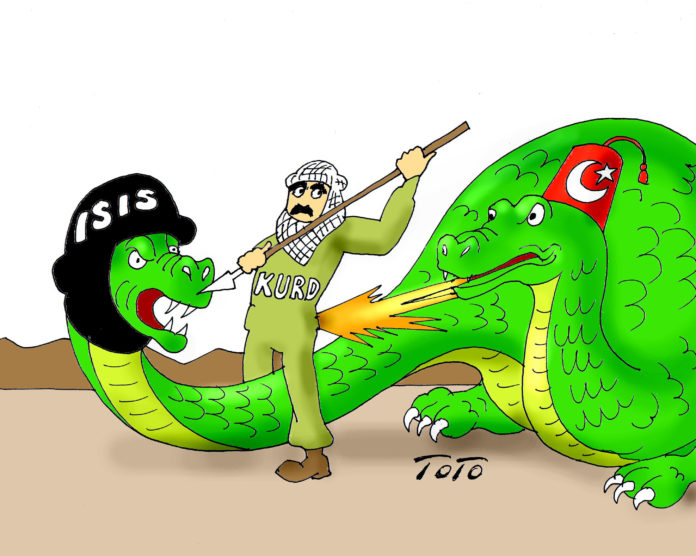The war in Syria is one of the most complicated problems facing the Middle East, involving major world powers and their regional surrogates. Nominally, the US is leading a coalition of 60 nations to uproot ISIS from its perch in Raqqa, Syria. But the infighting among the coalition partners is hampering the efforts to defeat the Islamic State.
All forces involved in the war claim their intent is to crush terrorism of Islamic extremists, but on the way to achieving that goal, there are many subtexts that drive the entire issue into a quagmire.
To call the Syrian problem a “civil war” is a misnomer because Syria was on the map of the Arab Spring planners, who had intended to neutralize all potential hostile powers to US and Israeli interests in the region. Hillary Clinton in a 2012 email summed up that policy in a message divulged by Wikileaks: “Bringing down Assad would not only be a massive boon to Israel’s security, it would also ease Israel’s understandable fear of losing its nuclear monopoly. Then, Israel and the United States might be able to develop a common view of when the Iranian program is so dangerous that military action could be warranted.”
All the rest of the rhetoric and the analyses concocted by pundits amount to fluff.
After the destruction of Iraq and Libya, Russia, partly recovered from the collapse of the Soviet Union, tried to draw the red line and came to the rescue of President Bashar al-Assad. Moscow’s intervention was also self-serving, because its only military base in the Mediterranean, located in Tartus, Syria, was threatened. Equally self-serving was Iran’s intervention because the Lebanese Hezbollah party was participating in the war, also in support of Assad. The militant group is Iran’s proxy in the region, challenging Israel.
In the above convoluted scenario, there is also the alignment of Syrian domestic forces and regional governments.










